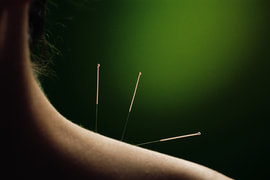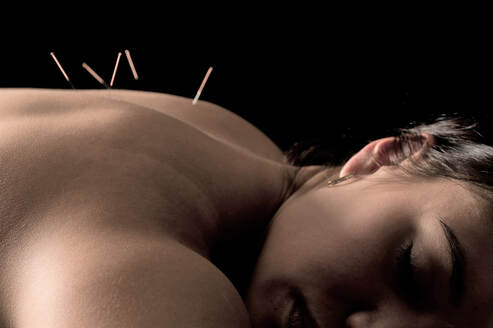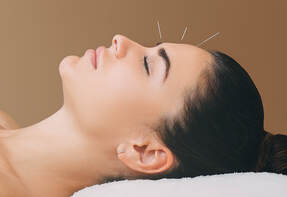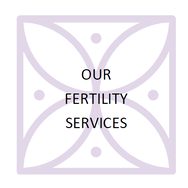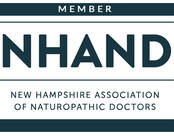About Acupuncture
The art and science of Acupuncture has been perfected over the last 2,000 years. Ancient Chinese texts indicate they were carving needles out of stone and placing them in very specific points on the body for therapeutic benefit, just as is done today. Thankfully, modern-day needles are made out of stainless steel and are only about as thick as a strand of hair. These fine needles are placed in points along meridians that run through our bodies. To determine what points to use, the practitioner takes the pulse and looks at the tongue to make a Chinese Medicine diagnosis and then creates a treatment protocol based on each patient's individual presentation.
Does it hurt?
Needle-phobes can rest assured that Acupuncture is minimally painful. When a person gets an IV, a shot, or their blood drawn, the needle is hallow and larger so that something may pass through it. Since Acupuncture needles are solid, they are far thinner than the needles you're used to and you probably won't feel much more than a pinch when they're inserted.
What can I expect during an acupuncture treatment?
On your first visit we will conduct an intake to review your health concerns and brief medical history. Then, needles will be placed on points that run along meridians, found throughout the body. Most of the needles will be placed on your hands, arms, lower legs, and feet, so it's important to wear loose, comfortable clothes to access these areas. Some needles may also be placed in your ears and head. Once the needles are in, you may move around slightly to scratch an itch or get into a more comfortable position, but it's best to stay still and use the session as an opportunity to relax and rejuvenate. This will allow the needles to have the optimal effect. Some people sleep during their treatment, while others simply relax. Treatments last about 60 minutes.
The art and science of Acupuncture has been perfected over the last 2,000 years. Ancient Chinese texts indicate they were carving needles out of stone and placing them in very specific points on the body for therapeutic benefit, just as is done today. Thankfully, modern-day needles are made out of stainless steel and are only about as thick as a strand of hair. These fine needles are placed in points along meridians that run through our bodies. To determine what points to use, the practitioner takes the pulse and looks at the tongue to make a Chinese Medicine diagnosis and then creates a treatment protocol based on each patient's individual presentation.
Does it hurt?
Needle-phobes can rest assured that Acupuncture is minimally painful. When a person gets an IV, a shot, or their blood drawn, the needle is hallow and larger so that something may pass through it. Since Acupuncture needles are solid, they are far thinner than the needles you're used to and you probably won't feel much more than a pinch when they're inserted.
What can I expect during an acupuncture treatment?
On your first visit we will conduct an intake to review your health concerns and brief medical history. Then, needles will be placed on points that run along meridians, found throughout the body. Most of the needles will be placed on your hands, arms, lower legs, and feet, so it's important to wear loose, comfortable clothes to access these areas. Some needles may also be placed in your ears and head. Once the needles are in, you may move around slightly to scratch an itch or get into a more comfortable position, but it's best to stay still and use the session as an opportunity to relax and rejuvenate. This will allow the needles to have the optimal effect. Some people sleep during their treatment, while others simply relax. Treatments last about 60 minutes.
|
Acupuncture for Fertility
The use of Acupuncture in couples who are trying to conceive has been shown to boost pregnancy outcomes by increasing endometrial thickness, improving egg and sperm quality, and reducing stress. Acupuncture during In Vitro Fertilization can be especially beneficial. Acupuncture Treats:
|
Insurance Coverage of Acupuncture
Dr. Haff is an In-Network Acupuncturist with Anthem Blue Cross Blue Shield. If your Anthem plan provides Acupuncture coverage, it may provide coverage with Dr. Haff even if it doesn't cover Naturopathic Services. Please call your insurance to verify that your plan will cover Acupuncture with her (see specific questions below).
Cigna and Harvard Pilgrim do not cover Acupuncture with Dr. Haff.
Questions to ask your insurance company:
Cigna and Harvard Pilgrim do not cover Acupuncture with Dr. Haff.
Questions to ask your insurance company:
- Does my plan cover Acupuncture?
- Will my plan cover Acupuncture visits with Dr. Michelle Haff?
- How many visits are covered per year?
- Do I have a copay for Acupuncture visits?
- Do Acupuncture treatments apply to my deductible?
- Will I owe coinsurance for Acupuncture treatments?
Fees & Packages
- Single Acupuncture session: $105
- Acupuncture Packages:
- 3 Sessions = $268 (15% off)
- 10 Sessions = $840 (20% off)
